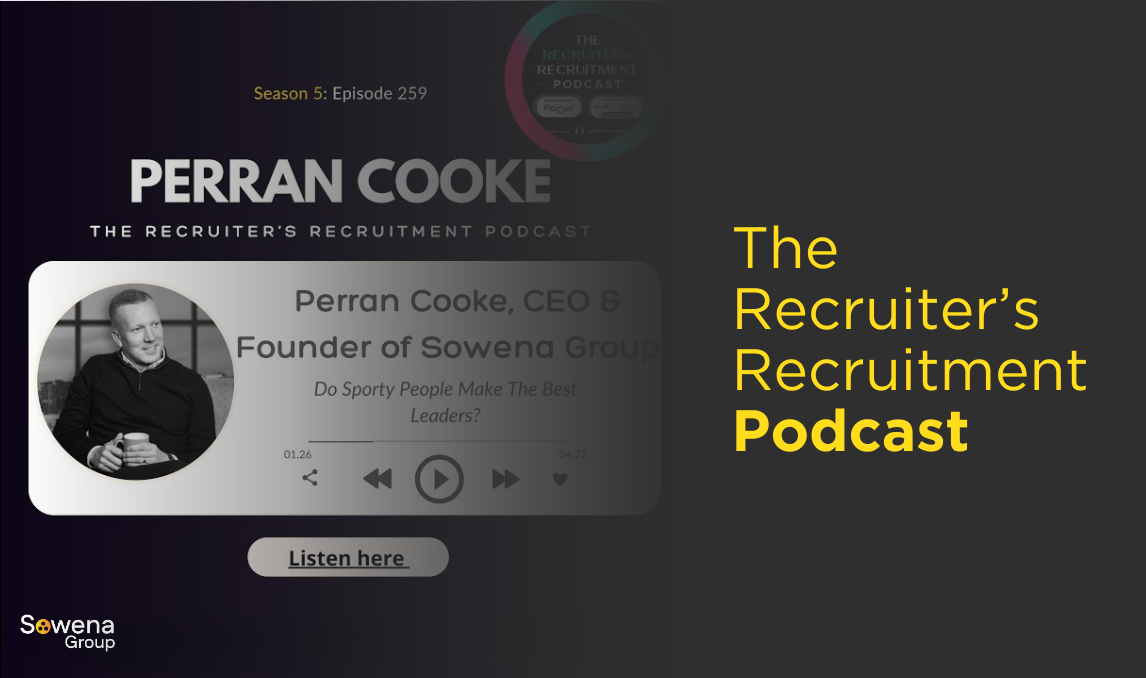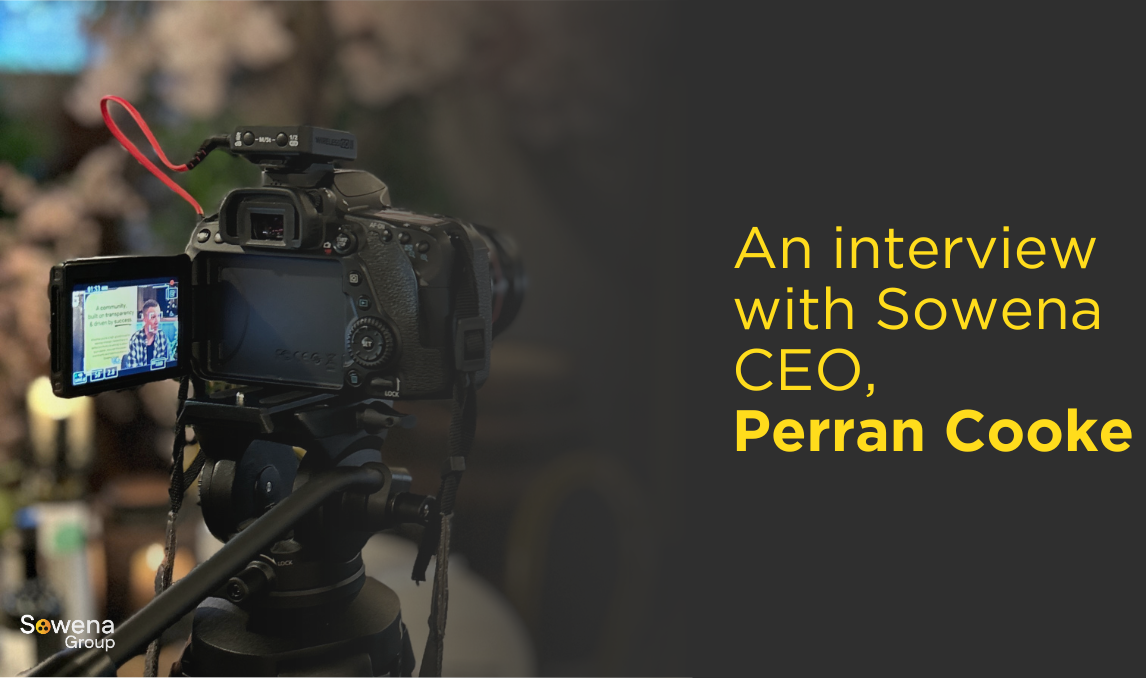5 Ways to Level Up Your Finance Career
25 Apr, 20251:00
You’re a few years in now. Qualified, working in your first or second role, and starting to get a clearer sense of how things work — the dynamics of a finance team, the pressure of month-end, maybe even a seat at the table for commercial discussions.
You’ve got your career sights set high and you know the direction you want to take.
You want to be someone who stands out, gets picked for the strategic projects, fast-tracks their way to leadership. But the big question is: How? Because being technically good at your job will only get you so far.
At Sowena Group, we work with ambitious finance professionals just like you — smart, driven, and already putting in the hours — but looking for the edge. We’ve helped newly qualified accountant’s become Finance Directors in their early 30s. And it always comes down to the same thing: intention.
In this article, we’ll provide you with clear, practical steps you can take right now to improve your future prospects. These are the habits, moves and mindsets that set high-performers apart.
Expand Your Network (Even If You’re Not a Natural Networker)
If the word “networking” makes you think of awkward small talk, you’re not alone. But if you want to grow your finance career fast, this is one of the most powerful things you can do, especially early on.
Here’s the truth: the best opportunities don’t always get advertised. They’re shared. They’re recommended. They’re whispered about between people who know, like, and trust each other. Some of the best newly qualified jobs come from referrals, not job boards.
Start Attending Events
Look into ICAEW events, industry panels, or even finance meetups around Manchester or Lancashire. Go to just one this quarter. Connect with people on LinkedIn afterwards.
Connect up, not just across
Most newly qualified accountants’ network sideways — peers at the same level. That’s useful, but don’t stop there. Start connecting with Finance Managers, Heads of Finance, CFOs. Follow them on LinkedIn. Comment thoughtfully on their posts. Message them when they say something that genuinely interests you.
You’d be surprised how many senior professionals are open to connecting — especially if you’re authentic and curious.
Build a Strategic LinkedIn Presence
You might already be on LinkedIn, but are you using it? Or are you just lurking, liking the odd post and logging off?
If you want to be seen by the right people — and be remembered for the right reasons — LinkedIn isn’t just a digital CV. It’s your personal brand. And you don’t need to be loud to be visible.
Curate Your Feed
Follow sector leaders, industry groups, and Manchester-based recruiters like Sowena Group. Subscribe to newsletters from top firms and fast-growth startups.
Update Your Profile to Reflect Your Ambitions
Make sure your headline reflects where you’re going:
“ACA Qualified | Commercial Finance Focus | Open to High-Growth Roles in Manchester”
Start Engaging — Even If You’re Not Ready to Post
Commenting is the easiest way to stay visible. Thoughtful comments (not just “great post!”) show you’re switched on and engaged. Do this consistently, and people start to notice you, especially if you’re commenting on their posts directly.
If you want to start sharing your own thoughts, try this:
- Share a takeaway from a finance webinar or event you attended.
- Talk about a soft skill you’re developing at work (e.g., presenting to senior stakeholders).
- Reflect on a challenge you recently solved.
You don’t need to post daily, just aim for consistency and relevance.
Stay Close to the Market
You don’t need to be applying for jobs to stay market-aware. In fact, the smartest finance professionals always keep one eye on the market, even when they’re perfectly happy where they are.
Why? Because it helps you make better career decisions. You spot trends earlier. You see what skills are in demand. And when the right opportunity does come along, you’re not scrambling, you’re ready.
Follow Boutique Recruiters
Look for elite or boutique agencies (like Sowena) that work exclusively with high-growth or high-calibre businesses. We often have access to exclusive jobs for newly qualified accountants before they’re advertised.
Pay attention to what roles we’re talking about, which companies are hiring, and what kind of experience employers are looking for right now. This gives you a benchmark to measure yourself against and a sense of where you might want to go next.
Look at job descriptions — even when you’re not job hunting
Once a month, skim a few job ads that are one level up from where you are now. Ask yourself:
- What skills or experience are mentioned repeatedly?
- Which ones do I already have?
- What gaps do I need to fill — and how can I start doing that in my current role?
It’s a simple habit, but it helps you stay ahead of the curve rather than playing catch-up when you’re ready to move.
Keep a casual file of companies you admire
Maybe it’s a startup doing exciting things in your industry. Maybe it’s a big player known for promoting from within. Start a shortlist. Follow their updates. Note when they’re hiring. That way, when you are ready to make a move, you’ve already done your homework.
And remember - you don’t need to wait until you’re job hunting to speak to a recruiter. At Sowena Group, our consultants are always happy to have confidential conversations about the market. Whether you’re after advice, insight, or a sense-check on where you’re headed, we’re here to guide you, not just place you.
Get a Mentor (And How to Approach Them Without Feeling Awkward)
Having a mentor can seriously accelerate your growth, but most people hold back because they assume mentors are only for senior professionals or formal programmes. They’re not. And the sooner you find someone to learn from, the faster you’ll progress.
A good mentor can help you see the bigger picture, challenge your thinking, and spot opportunities you might otherwise miss. It’s not about hand-holding, it’s about having someone in your corner who’s been where you’re trying to go.
Who makes a good mentor?
Think one or two steps ahead of you, not ten. A newly promoted Finance Manager, a Head of Commercial Finance, or someone who’s worked across both practice and industry. You want someone who still remembers what it’s like to be where you are, and who’s open to sharing what they’ve learned.
They don’t need to work at your company. In fact, sometimes it’s better if they don’t. A different perspective can help you think more broadly.
How to approach someone (without making it weird)
It’s not a marriage proposal. You’re just asking for a chat. Start with a message like:
“Hi [Name], I really admire the path you’ve taken in your career. I’m a couple of years post-qualification and trying to be more intentional about my development. I’d love to hear about your journey and get your perspective — would you be open to a quick coffee or a 20-minute call?”
Keep it light. If the first conversation goes well, you can always suggest catching up again in future.
Make it valuable — for both of you
Come prepared with questions. Listen. Take notes. And most importantly, follow up. If they’ve given you advice or recommended something - act on it. Mentors want to see that their time has made a difference.
Over time, this relationship can become one of the most valuable assets in your career, a sounding board, a reality check, and sometimes even a door-opener.
Learn From Those Above You
You don’t need a promotion to start levelling up, but you do need to start thinking like the people in the roles you want. One of the most effective (and overlooked) ways to grow fast is simply to learn from those above you.
Watch how your manager runs a meeting. Pay attention to what your Financial Controller focuses on in board packs. Listen to how your Finance Director talks to stakeholders. This is the stuff you won’t find in a textbook, the strategic thinking, the soft skills, the judgement calls.
Ask better questions
You’re already doing the work, now use it as a learning opportunity. After month-end, ask your manager:
- “What would you change or improve next time?”
- “How do you approach reviewing reports for the board?”
- “What do you think the FD looks for when reading this?”
You’re not being annoying, you’re showing initiative. And most senior finance professionals want to share what they know with someone who’s genuinely interested.
Put your hand up for stretch opportunities
Is there a project kicking off? A process that needs reviewing? A system that needs testing? Put your hand up. Especially if it feels slightly above your level.
Getting involved in work that stretches you beyond your core responsibilities is what gets you noticed and what helps you build the skills you’ll need at the next level.
Conclusion: Progress Is Intentional
If you’re already working in your first or second finance role, you’re in a strong position. But don’t fall into the trap of thinking that time served equals progress. The people who accelerate in their careers, the ones who make it to senior leadership in record time — all have one thing in common: they move with intent.
They build networks before they need them.
They learn from people who’ve done it before.
They show up, stay curious, and stay visible.
You don’t have to overhaul your entire life to start improving your future prospects. But you do have to take action. Pick one thing from this article and commit to doing it this week. Whether it’s reaching out to someone on LinkedIn, signing up for a finance event, or asking your manager a better question.
And remember: you’re not doing this alone. At Sowena Group, we’re more than recruiters - we’re career partners for ambitious finance professionals. Whether you’re actively looking for your next role or just want some clarity on your next step, our consultants are always here for a confidential chat. No pressure. Just honest advice and guidance when you need it most.


